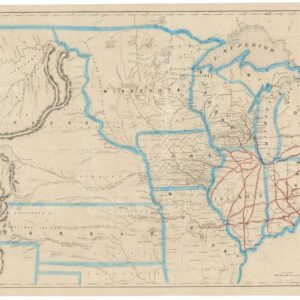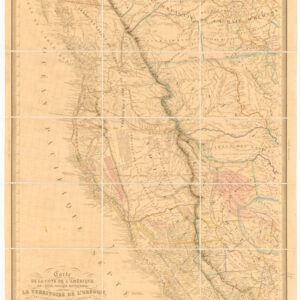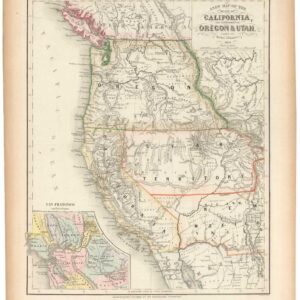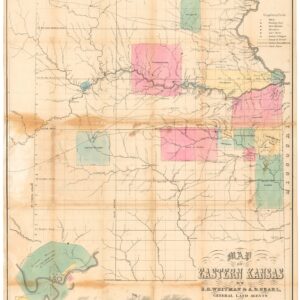Original Republic of Texas referendum document stipulating the results of the 1838 election of a new president, signed by William Lockhart Hunter.
[1838 Republic of Texas manuscript document detailing the votes for elected office, including President].
$9,500
In stock
Description
On September 3rd, 1838, a referendum was held to ascertain public representatives in the new Republic of Texas. The event produced this original manuscript document, which holds crucial information about the election of various officials, including both the position of President and Vice-President in the independent Republic.
The document constitutes a detailed accounting of the votes cast for the President, Vice-President, Senators, and Representative positions. The names of at least 55 registered candidates from Austin County are listed on one side, while the reverse side contains a concise record of votes received (marked with a single line). Mirabeau Lamar emerged as the ultimate victor in the presidential election, receiving an overwhelming 46 votes compared to his opponent, Robert Wilson, who garnered a mere 6 votes.
The manuscript is dated at the top and mainly consists of a list of candidates and the number of votes they have secured. There is also a hand-written note on the verso certifying that the information noted above is truthful and correct. The signatures include Justice of the Peace William Hunter and two clerks: J.M. Pennington and William B. Gayle. William Hunter is presumably William Lockhart Hunter (1809-1886), a soldier and politician from Virginia who fought in the Texas Revolution and was one of only a handful of Colonel Fannin’s men who survived the Goliad Massacre (1836). In addition to Justice of the Peace, Hunter later became Goliad’s House representative and senator. He was buried in Austin with military honors, where his grave still stands today.
Context is Everything
The election depicted in this document took place on September 3rd, 1838, as dictated by the Republic of Texas constitution. The first president of the Republic was Sam Houston. His term was limited to two years, and he was by law ineligible for re-election. Mirabeau Lamar, who was serving as Vice-President at the time, was in a contest against Texas Senator Robert Wilson. Wilson entered the race relatively late because he replaced two previous presidential candidates who both had taken their own lives during the campaign. Whether Wilson’s election loss was due to his late arrival in the competition is uncertain, but regardless of the reasons, Mirabeau Lamar won an overwhelming victory, securing an impressive 96.5% of the vote and defeating Wilson in a landslide. David G. Burnet was declared the Vice-President, having obtained over 50% of the vote.
Mirabeau Lamar was born in Louisville, Georgia in 1798. He grew up on his father’s cotton plantation. After studying law and gaining admission to the bar in 1833, he embarked on an unsuccessful campaign for Congress. In 1835, following the tragic suicide of his brother, Lamar settled in Texas. He joined Sam Houston’s army in 1836 and displayed remarkable bravery in the Battle of San Jacinto. Later that year, after Texas had won its independence, Lamar was elected Vice-President of the new Republic and President in 1838.
Entering his presidency, Lamar’s inaugural address to the Texas Congress focused on displacing the Comanche and Cherokee tribes from their lands to make room for the continued expansion of the Republic. Despite this ambition, Lamar’s presidency is primarily remembered for the financial challenges stemming from the Cherokee War (1838-39) and the issuance of the so-called ‘Redback’ currency. Redbacks were bearer promissory notes that Lamar’s administration issued between January 1839 and September 1840. The goal was to fund Texas’s national debt, but inflation, mainly due to overprinting, quickly devalued the notes substantially, making fifteen Redbacks equal to one US dollar.
Census
In general, original documents from the Republic of Texas are becoming increasingly rare, with unique items like this nearing the exceptional. Being a hand-written census of votes, this document constitutes an official, one-of-a-kind item, making any institutional search for parallels fruitless.
Cartographer(s):
Condition Description
Manuscript document with text on both sides. Split along middle into two sheets.
References



